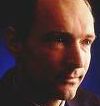



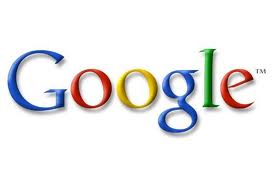
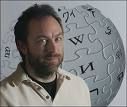

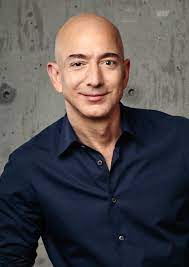
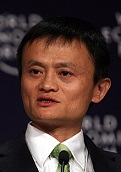
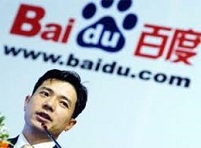
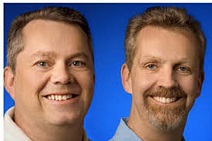
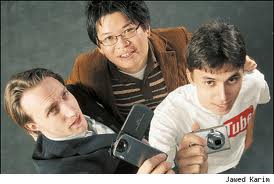
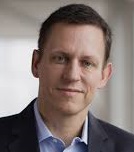
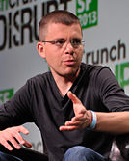






















TLW's World Wide Web Historyscope™ |
By T.L. Winslow (TLW), the Historyscoper™ |
© Copyright by T.L. Winslow. All Rights Reserved. |
Original Pub. Date: Feb. Mar. 23, 2018. Last Update: Oct. 9, 2018. |
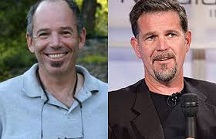


Westerners are not only known as history ignoramuses, but double dumbass history ignoramuses when it comes to the World Wide Web (WWW) and World Wide Web history. Since I'm the one-and-only Historyscoper (tm), let me quickly bring you up to speed before you dive into my Master Historyscope.


In 1910 Belgian attys. Paul Otlet (1868-1944) and Henri La Fontaine (1854-1943) found the Mundaneum to gather and classify all the world's knowledge using their Universal Decimal Classification based on the Dewey Decimal Classification System, which later leads to the Internet.
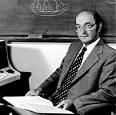


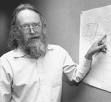


In 1968 English (Welsh) mathematician Donald Watts Davies (1924-2000), Polish-born Am. engineer Paul Baran (1926-), and Am. computer scientist Leonard "Len" Kleinrock (1934-) invent Packet Switching, helping to make computer communication possible, which is later adopted by the Arpanet and the Internet. On Sept. 2, 1969 the first two computer installations of the Arpanet (Advanced Research Projects Agency Network) are connected at the lab of Prof. Leonard "Len" Kleinrock (1934-) at UCLA by Bolt, Beranek & Newman (BBN Corp.) of Cambridge Mass; UCLA grad student Jonathan Bruce "Jon" Postel (1943-98) et al. work to link three univs. and develop internat. links with a new network router comm switch; on Oct. 29 (10:30 p.m.) the first message is sent by Charley Kline; by Nov. four nodes are operational; Postel goes on to become the "Boswell of the Internet". In Oct. 1971 the 29-node Arpanet (Advanced Research Projects Agency Network) is demonstrated publicly at the Hilton Hotel in Washington, D.C. by Robert Elliot "Bob" Kahn (1938-) and Raymond Samuel "Sam" Tomlinson (1941-) of Bolt Beranek & Newman, featuring the first e-mail, using the @ sign to separate the addressee from the computer host, triggered by the shift-2 combo on the Model 33 Teletype keyboard; by 1975 there are 100 nodes worldwide.
On Sept. 27, 1983 the GNU Project is announced on the Internet to coordinate the release of free software source code, allowing a charge for distribution.
In Jan. 1985 the top-level domain names .com, .org, .edu, .gov et al. are introduced into the fledgling Internet; Symbolic.com (think.com) becomes the first registered dot-com domain.


In 1985 William F. Von Meister (1942-95) of Control Video Corp. and Honololu-born Procter & Gamble marketing exec (former Pizza Hut mgr.) Stephen McConnell "Steve" Case (1958-) found Quantum Computer Services, the predecessor to America Online (AOL), which goes on to pioneer home dial-up Internet service until the rise of broadband causes it to decline; in Jan. 2000 it merges with Time Warner, spinning off in 2009; in Sept. 1993 Eternal Sept. sees AOL begin offering Usenet access to it users, swamping the college crowd as AOL begins mailing free trial CDs, swamping the market and helping it pass GEnie and Prodigy by the mid-1990s; on June 23, 2015 it is acquired by Verizon Communications for $4.4B.

In Mar. 1989 English-born Sir Timothy John "Tim" Berners-Lee (1955-) of CERN in Switzeland invents the World Wide Web (WWW), which starts out as a company-only net called Enquire Within Upon Everything, and is released globally in 1991, based on the HTML (HyperText Mark-Up Language), URLs (universal resource locators), and HTTP (HyperText Transfer Protocol); the French trans. World Wide Web as "Toile d'Araignee Mondiale"; the Hebrew letter waw is equivalent to 6, so WWW equals 666? - could it have something to do with the Swiss love of fondue?
In 1990 the U.S. govt.-run Arpanet is decommissioned, and the Internet takes over and goes commercial, immediately being swamped with porno Web sites, which make big bucks while driving millions of men crazy and ruining marriages and families?; on Sept. 10 Archie is founded by McGill U. student Alan Amtage, becoming the first Web search engine, followed by Veronica (1992) and Jughead (1993); by the late 1990s San Fernando Valley N of the Hollywood Hills in Calif. becomes San Pornando Valley as the porno industry moves in bigtime, generating billions in sales each year (until ?).
In Feb. 1993 Excite.com search engine (originally Architext) is founded by six Stanford U. students incl. Graham Spencer and Joe Kraus; they sell out to @Home on Jan. 19, 1999 for $6.5B.


The Year of Internet Search Engines? In Jan. 1994 Infoseek is founded, allowing Webmasters to submit Web pages for indexing; in Dec. 1995 Netscape begins use it as its default search engine; in Dec. AltaVista is founded, becoming the first to allow natural language queries; it is purchased in Feb. 2003 by Overture, which is acquired by Yahoo! in 2003; in Apr. WebCrawler is founded., becoming the first to index entire Web pages, selling out to AOL in June 1995; in Apr. Stanford U. grad students Jerry Yang (1968-) (born in Taiwan) and David Filo (1966-) found the Internet search engine Yahoo.com (Yet Another Hierarchical Official Oracle?) in a campus trailer, and incorporate next Mar. 2; in 1997 Yang becomes the world's youngest billionare at age 29; urls are entered manually by their staff, causing a long wait to get listed in return for higher quality search results for users; in July Lycos is founded, becoming the first with ranked relevance retrieval, selling out to Daum Communications of South Korea in Oct. 2004; meanwhile Justin Hall of Swarthmore College starts an online diary called "Justin's Links from the Underground", becoming the first blog; in 1997 Jorn Barger coins the term "weblog"; Peter Merholz coins the short form "blog".
On Feb. 10, 1994 French-born Am. Jean-Noel Frydman registers the domain name France.com; too bad, in Apr. 2015 the country of France begins legal proceedings to appropriate it, causing him to countersue.

On July 5, 1994 online bookseller Amazon.com (original name Cadabra, which sounds too much like cadaver?) is launched in Seattle, Wash. by Jeffrey Preston "Jeff" Bezos (nee Jorgenson) (1964-), making its first sale, a science textbook, growing to the world's largest Internet online sales co.; on July 27, 2017 Bezos becomes the world's wealthiest person ($90B), growing to $130.8B by Mar. 21, 2018.


In 1994 Marc Andreessen (1971-) and Silicon Graphics founder James H. "Jim" Clark (1944-) found Netscape, which helps launch the Internet IPO boom on Wall St.; on Aug. 9, 1995 it goes public, and Clark earns $2B on an initial investment of $5M.
In 1994 the .ru domain is created for Russia, but the .su domain (Soviet Union) survives, becoming a favorite home for cybercriminals, reaching 120K domains by 2013.
In 1994 the Bielefeld Conspiracy begins on the Internet when people begin claiming that the city of Bielefeld N of the Teutoburg Forest in North Rhine-Westphalia, Germany doesn't really exist - where are you guys looking?
On May 26, 1995 Bill Gates sends a memo to his top execs telling them that the Internet is now Microsoft's top priority; on Nov. 22 (JFK assassination day) Microsoft unveils Internet Explorer 2.0; on Dec. 7 Gates unveils his Internet strategy to the public at an all-day session, causing millions to fear yet another monopoly in the making.
On Aug. 24, 1995 Microsoft launches Windows 95 - the monopoly is a little more complete, now let's go after the browser? On Aug. 24, 1995 MSN (Microsoft Network) is founded, complete with its own search.

On Sept. 4, 1995 (Mon.) (Labor Day) the eBay (electronic San Francisco Bay area) Web site is launched (original name Auction Web) by Paris, France-born Iranian-Am. founder (Tufts U. grad) Pierre Morad Omidyar (1967-), then renamed after Omidyar's consulting firm Echo Bay; by mid-1997 it has 150K users bidding in 794K auctions a day, and doubles every 3 mo.; it goes public in 1998, making him a billionaire, and by Oct. 1999 its stock is valued at $18B; in 2005 Omidyar donates $100M to found Omidyar Network for the purpose of making microfinance loans to poor people in developing countries.
In 1995 Digital Equipment Corp. patents Altavista, the first searchable full-text Internet search engine; in 2003 it is acquired by Yahoo!, which shuts it down on July 8, 2013; LookSmart (originally Homebase) is founded to compete with Yahoo!, becoming an online advertising co.

In 1995 Danish-Canadian programmer Rasmus Lerdorf (1968-) invents PHP (originally Personal Home Page), a free hypertext preprocessor that becomes the most popular language for creating dynamic Web pages; in 1997 Israeli programmers Andi Gutmans and Zeev Suraski extend it to implement recursive initialization, creating PHP 3.
In Jan. 1996 the BackRub search engine is founded by the future founders of Googol to rank pages based on backlinks on other pages; Inktomi Hotbot is founded in May, selling out to Yahoo! in Dec. 2003 for $235M.
In 1996 Susan Polis Schutz (1944-) and Stephen "Steve" Schutz invent the free electronic greeting card, founding the BlueMountainArts.com Web site, finally selling it to ExciteAtHome for an astounding $1B, who unload it to Am. Greetings for $35M after the Internet boom bust. The first voice-over-Internet products are announced.
In Apr. 1997 Ask Jeeves (Ask.com) search engine is founded in Berkeley, Calif. by Garrett Gruener and David Warthen (1957-); in Mar. 2005 it is acquired by IAC for $1.85B.
On Aug. 6, 1997 Bill Gates announces that Microsoft will make a $150M investment in Apple Computer to insure its survival, with of course a few little strings; meanwhile in Sept. Microsoft introduces chock-full-of-bugs Explorer 4.0, threatening browser leader Netscape (not technically, but via its chokehold on PC makers), and in Oct. Sun Microsystems sues Microsoft over its licensing of its 1995 Java computer language, and never-admit-you're-wrong Microsoft countersues; on Oct. 27 the U.S. Justice Dept. files an Antitrust Suit Against Microsoft, accusing it of being an illegal monopoly that has violated its 1994 consent decree; in Nov. otherwise-lame consumer advocate Ralph Nader holds a cool Anti-Microsoft Conference in Washington, D.C.; on Dec. 11 U.S. federal judge Thomas Penfield Jackson (1937-) issues a preliminary injunction to stop Microsoft from forcing PC makers to install its cruddy Monopolysoft Explorer, followed by orders in Dec. to stop them from bundling it with their own Windows 95 operating system; on Dec. 15 Microsoft appeals - and this time it's not a game with pastel money?

On Aug. 29, 1997 Netflix streaming media Web site is founded in Scotts Valley, Calif. by Marc Bernays Randolph (1958-) and Wilmot Reed Hastings Jr. (1960-), starting out as a DVD-by-mail service, introducing a monthly subscription option in Sept. 1999 before switching to a flat-fee unlimited rental service in early 2000, going public on May 29, 2002 and earning its first profit in fiscal year 2003, $6.5M on $272M revenues, offering 35K different films and shipping 1M DVDs/day in 2005, going into streaming in 2007 and growing to 50M subscribes in Apr. in 2014 and 100M subscribers in Apr. 2015.
In 1997 the Dot-Com Boom and Bust (Bubble) begins, with new cos. sprouting up and floating stock on little more than a Web site and an angle (ends 2001); despite big bucks invested by dopes, a string of spectacular dot-com flops results, incl. eToys.com, MVP.com (sporting goods), and Go.com (Disney); meanwhile the phenomenal growth of the World Wide Web leads to domain name speculation and instant wealth without needing big investment just by selecting a likely name, e.g., sex.com (sold for $13M in 2010), whitehouse.com, beer.com, pizza.com, and roses.com.
In June 1998 Open Directory Project (DMOZ) (originally GnuHoo then NewHoo) is founded to compete with Yahoo! with volunteer editors, selling out to Netscape in Nov., which is purchased by AOL for $4.5B; it closes on Mar. 14, 2017.



On Sept. 4, 1998 Stanford U. students Sergey Mikhailovich Brin (1973-) and Lawrence Edward "Larry" Page (1973-) (who built an inkjet printer out of Legos in college) found the search engine Web site Google in a garage in Menlo Park, Calif. with a staff of four people, originally calling it Backrub because it analyzes Web site links, then changing it to Google after the word Googol, coined in 1920 by Am. mathematician Edward Kasner (1878-1955); despite a crowded field of well-financed search engine sites, they find that a sucker trick of hiding the paid advertising from the user by making advertisers pay for the order their sites come up in listings, rather than the obvious but annoying approach of thumbnail aids that pop up on the search screens is a winner (despite the result that all search results are skewed by the rich?), making them go #1 and later turning them into 20-something billionaires with a dot.com that has little revenue and no real product, patent, or creativity behind it, but zillions of mindless eyeballs, who seemingly never ask for a CD or DVD of the search engine database so that they don't have to keep connecting with it every time they need a dollop of info. - the Internet helps a few amass huge fortunes, but makes nada for the little guy?



In 1998 PayPal.com online payments system is founded by German-born Peter Andreas Thiel (1967-) and Ukrainian-born computer scientist Maksymilian Rafailovych "Max" Levchin (Levchyn) (1975-), merging in 2000 with X.com, founded by South African-born Am. engineer Elon Musk (1971-); it goes public on Feb. 15, 2002 and is purchased by eBay for $1.5B on Oct. 3, 2002.
In 1998 Am. economist Paul Krugman utters the immortal soundbyte about the Internet: "By 2005 or so, it will become clear that the Internet's impact on the economy has been no greater than the fax machine's."
In 1998 the Web emerges as a medium for pirating copyrighted music stored in MP3 compressed format; when Diamond Multimedia Systems of San Jose, Calif. announces the Rio, a digital personal stereo that stores up to one hour of MP3 music, they are sued by the Recording Industry Assoc. of Am. (RIAA), seeking to keep the device from the market; meanwhile on Oct. 12 the U.S. Digital Millennium Copyright Act is unanimously passed by the u.S. Senate, making it a crime to circumvent access-protection technology built into software or other media or to traffic in code-cracking devices; it incl. the Safe Harbor (DMCA 512) Provision (Online Copyright Infringement Liability Limitation Act) exempting Internet intermediaries from liability if they follow certain rules - now every geek can be an outlaw?

On Apr. 4, 1999 Alibaba Group multinat. e-commerce Internet conglomerate is founded in Hangzhou, Zheijiang, China by Jack Ma (Ma Yun) (1964-), going public on Sept. 19, 2014 and reaching a market cap of $527B by Jan. 2018.
By the end of 1993 60 countries are on the Internet, and 137 are reachable by email, with 99 to go; in Feb. the NSFnet backbone carried 5 terabytes of traffic, and in Dec. the USENET posted an avg. of 43K articles a day, by 9.3K users at 3K sites, totalling 83MB; there are four Internet hosts in the U.S. per 1K pop.

On Jan. 1, 2000 Baidu search engine is founded in Beijing, China by Robin Li (Li Yanhong) (1968-) and Eric Xu Yong (1964-), going on to become the 2nd largest search engine on Earth, with a 76% market share in the Chinese market; in Dec. 2007 it becomes the first Chinese co. to be listed in the NASDAQ-100.


Information gets cheaper and cheaper, but knowledge still is worth what you pay for it? In 2001 the Dot-Com Boom (Bubble) (begun 1997) falls on its face, with thousands of cos. (little more than air and a Web site) going under; meanwhile on Jan. 15 winner site Wikipedia is founded by Ala.-born Jimmy Donal "Jimbo" Wales (1966-) and Wash.-born Lawrence Mark "Larry" Sanger (1968-) as a user-generated encyclopedia with articles of varying quality contributed by anon. volunteers, reaching 1M articles in English by Mar. 2006; too bad, there is little control of the contributors or content, those who are talked about in the articles have a habit of sneaking in and fluffing the wording, and since contributors aren't paid, it threatens to kill the literary market, all causing a nightmare in QA; in Nov. 2005 a wave of controversy is caused by the discovery that someone had rewritten their article on Tenn. pub. John Siegenthaler Sr., allleging that he had been implicated in the Kennedy assassinations; in Dec. 2005 Nature pub. an article comparing it to Encyclopaedia Britannica, finding it to be nearly as accurate, causing the latter to shoot back in Mar. 2006 that their article is wrong and full of inaccuracies; in 2007 Sanger says "It has bothered me that I helped to get a project started that people are misusing", announcing plans for a new online encyclopedia called Citizendium (launched on Mar. 25, 2007), adding "gentle expert oversight" and requiring contributors to ID themselves, which slowly grinds to a crawl; meanwhile the poorly-designed source code is propagated throughout the Internet, causing alternative user-content products to spring up; too bad, Wiki cedes too much power to editors, who accumulate special privileges then hijack Wiki pages and actively keep them from improvement, incl. the Laura Branigan bio. page, which for years was taken over by a clique of editors who knowingly promulgated a false birthdate of 1957 for her instead of the real one of 1952 to please their fan club, cutting off access to any editors who tried to correct it, while the top mgt. did nothing - no more encyclopedia salesmen at our doors?
By the end of 2001 there are 445M people online worldwide, of which 119M (27%) are in the U.S.
On Sept. 20, 2002 the Tor (The Onion Router) anonymity network is released, becoming a favorite avenue of the Dark Web.

On Dec. 28, 2002 LinkedIn business-employment-oriented social networking Web site is founded in Mountain View, Calif. by Reid Garrett Hoffman (1967-) and partners from PayPal and Socialnet.com, launching on May 5 and reaching 106M active members by Apr. 2017 after being acquired by Microsoft on Dec. 8, 2016 for $26.6B; "When I graduated from Stanford my plan was to become a professor and public intellectual. That is not about quoting Kant. It's about holding up a lens to society and asking 'who are we?' and 'who should we be, as individuals and a society?' But I realised academics write books that 50 or 60 people read and I wanted more impact." (Hoffman)
In early Aug. 2003 Blaster and SoBig network worms are released, causing Microsoft to begin offering cash rewards to detectives who help capture the worm farmers; despite this, next year Netsky and Sasser do it again - Bill Gates should give all those billions back to his Windoze customers for selling them schlock software, plus more millions to the worm programmers for showing him up, then get a job at a food bank for the elderly?

On Feb. 4, 2004 White Plains, N.Y.-born Jewish-Am. Harvard student Mark Elliot Zuckerberg (1984-) launches the Web site Sucker, er, Facebook.com from his dorm room, then drops out to move to Palo Alto, Calif. and build a megacorp; too bad, he soon becomes a Bill Gates type monopolist who doesn't protect user privacy and terminates accounts at will for any reason?; in 2007 the Beacon advertising platform is launched, but is taken down after it shares user purchasing decisions without their permission - the next big thing will be Assbook.com?

On Feb. 14, 2005 20-something Am. geeks Chad Meredith Hurley (1977-), Bangladeshi-descent Jawed Karim (1979-), and Taipei, Taiwan-born Steve Shih Chen (1978-) found YouTube.com for sharing homemade videos on the Web, and within a year receive a $11.5M venture capital investment from Sequoia Capital of Menlo Park, Calif., the same firm that helped launch Google, and ramp up its San Mateo, Calif. site to 9M visitors a mo. by Feb. 2006; the first video is Me at the zoo by Karim; like MySpace.com, it gets into trouble with either sexual predators or copyright violation issues, but on Oct. 16, 2006 Google buys YouTube for $1.65B - but but but they're the future?

In Oct. 2004 Google Maps is acquired from Sydney, Australia-based Where 2 Technologies, owned by Danish brothers Lars Eilstrup Rasmussen and Jens Eilstrup Rasmussen, turned from a downloadable to Web-based app, and launched by Google in Feb. 2005.
China shows how Big Brother and the Internet can coexist? In 2005 after investing $138B in infrastructure over five years, China now has 94M Internet users, compared to 24M for India; online revenue is $1.1B, compared to $93M for India; in Aug. Yahoo.com pays $1B for a 40% stake in Alibaba.com, China's biggest online commerce firm; in 2003 it invested $120M in a Chinese search engine, and in 2004 bought a controlling stake in online auction site 1pai.com.cn; Chinese web sites are prohibited from containing content that "divulges state secrets, subverts the govt. or undermines national unity", and in 1997 this was announced to incl. "feudalistic" and "supersitious" content, incl. astrology, fortune-telling and numerology; there are Internet police depts. in over 700 cities and provinces; Microsoft Corp. draws criticism for implementing software for China which kow-tows to these demands, warning bloggers not to use words like "democracy", "freedom", "liberty", "demonstration", "separatism", "capitalism", "human rights"; China also bans Wikipedia, the 2.3M article 100-language free online user-supported hit-miss encyclopedia.
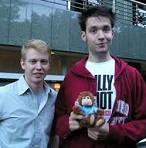
On June 23, 2005 Reddit social news aggregation, rating, and discussion Web site is founded in Medford, Masss. by former U. of Va. roommates Steve Huffman (1983-) and "Mayor of the Internet" Alexis Kerry Ohanian Sr. (1983-) with the goal of becoming "the front page of the Internet"; in Oct. 2006 it is acquired by Conde Nast Pubs. of San Francisco, Calif. going on to reach 542M visits/mo. by Feb. 2018.
In July 2005 Rupert Murdoch purchases the artist community Web site MySpace.com (founded on Aug. 1, 2003) for $580M from founders Tom Anderson and Chris De Wolfe, who launched it in Jan. 2004, and benefited from the penetration of the Internet into homes; by the end of the year it has 42M registered users and has 550K musical artists with songs on the site.

In Mar. 2006 Twitter.com is founded by Jack Dorsey (1976-), becoming the first Internet telegraphing service, where users can select whose message stream of up to 140 chars. per message to follow; on Aug. 27 Chris Messina invents the Twitter hashtag, with the first Tweet using it reading "how do you feel about using # (pound) for groups."
On Apr. 23, 2006 Spotify "freemium" music streaming service is launched in Stockholm, Sweden, paying royalties to rights holders, reaching 170M users in 2018, 75M of them paying after it launches on Oct. 7, 2008.
On Apr. 28, 2006 Google launches Google Translate free multilingual machine translation service, supporting 100+ languages and reaching 500M users/day by May 2017; in Nov. 2016 Google announces that it is switching to a neural machine engine called Google Neural Machine Translation (GNMT), which translates whole sentences at a time.
In Mar. 2007 Scribd.Com is launched from San Francisco, Calif., allowing anybody to upload anything they write and share it for free with others, becoming known as "the Netflix for books", with 80M users and 60M documents by 2018, causing competing sites to spring up.
In Jan. 2008 Sun Microsystems announces a $1B acquisition of MySQL, an open source database co. that gives away its software to 99% of its customers; the paying 1% incl. Google, Yahoo!, Nokia, and Alcatel-Lucent.
On July 28, 2008 the cuil (pr. like cool) search engine is launched by ex-Google employees, featuring the largest index; it shuts down on Sept. 17, 2010.
On Sept. 25, 2008 the Internet search engine DuckDuckGo is founded in Paolo, Penn. by Gabriel Weinberg, named after the children's game "Duck, Duck Goose", with the goals or protecting the privacy of users and avoiding Google's infamous filter buble of personalized search results; by 2018 it has 40 employees.
On May 28, 2009 Bing.com search engine is launched by Microsoft to compete with Google.
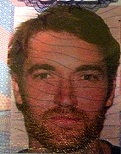
In 2009 mysterious Satoshi Nakamoto (1975-) of Japan invents Bitcoin electronic cryptocurrency, inventing the first blockchain database and releasing the source code; in 2010 it is first used for illegal drug purchases on the Internet by hallucogenic mushroom farmer Ross William Ulbricht (1984-) of Tex., who creates the online black market site Silk Road in Feb. 2011 under the name Dread Pirate Roberts, which is shut down by the FBI in Oct. 2013, after which on May 29, 2015 a federal judge sentences Ulbricht to life in prison without parole.
A feminine hygiene product for robots? On Jan. 27, 2010 (13:00 ET) Apple unveils the $499 iPad tablet computer, releasing the first one on Apr. 3 for $629 with AT&T data; on June 10 the FBI opens a probe into a security breach of Apple's iPad that exposed personal info. of AT&T customers incl. several high-ranking govt. officials.

In Sept. 2011 Snapchat multimedia messaging app is founded by former Stanford U. students Evan Thomas Spiegel (1990-), Bobby Murphy, and Reggie Brown, going on to to becoming popular with mobile phone users, reaching 187M users by Feb. 2018.
In 2011 the first Massive Open Online Courses (MOOCs) are offered by Stanford U., MIT, and Harvard U.
On Jan. 19, 2012 after the U.S. govt. shuts down the Megaupload.com file sharing Web site, Anonymous stages a denial of service attack on the Web sites of the FBI, U.S. Dept. of Justice, U.S. Copyright Office, Universal Music Group, Warner Music, BMA, and RIAA.
On Feb. 1, 2012 Facebook files for an IPO.
On Apr. 9, 2012 Facebook buys photo-sharing application Instagram for $1B.
On Apr. 24, 2012 Google announces its new Penguin algorithm, designed to penalize Web sites that use black-hat SEO to inflate their page rankings.
On Feb. 17, 2013 Hungarian physicist Albert-Laszlo Barabasi pub. a paper claiming that every one of the 1T Web documents (14B Web pages plus images, videos, and files) is connected with every other by at most 19 clicks.
On Mar. 1, 2013 the Center for Copyright Info. (CCI) launches the Copyright Alert System (CAS) that overrides Internet access for users detected of infringing copyrights, and implements a 6-strikes program to hamper their Internet access.
On Sept. 26, 2013 Google announces their new Hummingbird algorithm, which makes use of natural language queries, making reliance on keywords obsolete.
On Nov. 7, 2013 Twitter.com launches its IPO.
On July 24, 2014 Google announces their Pigeon algorithm, which warps search rankings to give preference to local listings.

In Nov. 2014 Microsoft purchases Mojang, maker of the online game Minecraft for $2.5B, making 35-y.-o. Markus Alexej Persson (1979-) AKA xNotch a world billionaire #1415.
In 2015 Google+ creates a software glitch giving outside developers access to private profile data, which isn't correct until Mar. 2018; Google execs fail to disclose it to the public until Oct. 2018.
In Sept. 2015 Facebook founder Mark Zuckerberg is overheard talking on a hot mic at a U.N. development summit in New York City with German chancellor Angela Merkel, telling her "we need to do some work" on the issue of suppressing "offensive posts" on the refugee crisis, meaning anybody complaining about the evils of Islam and Muslim immigration to the West, answering "Yeah" to her question "Are you working on this?"
In Sept. 2015 Google fixes their search engine algorithm that supplies the answer "Jews" to the question "Who runs Hollywood?"
In June 2016 LinkedIn.com announces that it is being acquired by Microsoft for $26.2B.
'In July 2017 Google changes its algorithm to downgrade and conceal sites that tell the truth about Islam, while promoting Islam propaganda sites, bowing to their jihad like chumps and potentially opening the West open to infilration of takeover; pizza-faced 20-something geeks are the easiest targets for Islamist agitprop artists?
In July 2017 after attending a Google diversity program, Google engineer James Damore pub. an internal memo claiming that there are genetic differences between men and women that explain disparities in tech employment, causing a firestorm of PC controversy, after which he is fired on Aug. 7, and sues.
In Jan. 2018 Project Veritas reveals the Twitter practice of "shadow banning", secretly banning users for their conservative content by making sure their posts are not seen by other users; in combo with Google they are effectively skewing election results and opening the West to Muslim takeover?
On Mar. 16, 2018 the 2018 Facebook Scandal begins when it is revealed that Steve Bannon's Cambridge Analytica had obtained private data on 50M Facebook users back in 2015, and promised Facebook that it would be deleted after being banned from Facebook, and the British Parliament accuses Facebook of misleading them about it and demands that CEO Mark Zuckerberg testify, causing Facebook's stock to plummet amid a rash of lawsuits.
In Mar. 2018 Egypt Face is launched in Egypt as the Egyptian version of Facebook.
On May 25, 2018 the Gen. Data Protection Regulation (DPR) (adopted on Apr. 14, 2016) comes into effect in the EU, protecting personal data of all EU citizens.